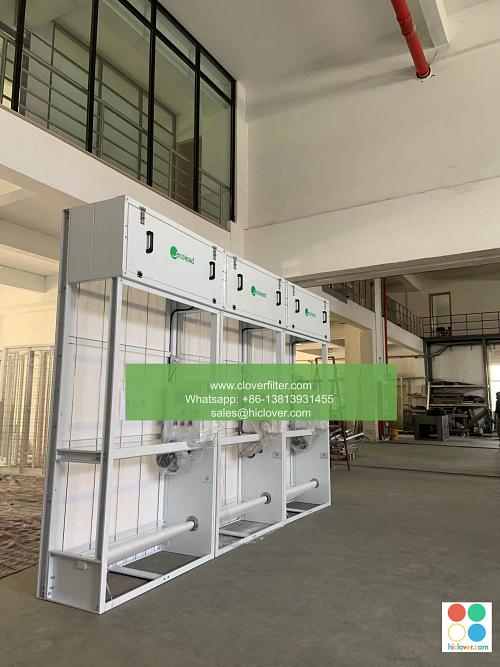The Role of Air Filters in Preventing Mold and Mildew Growth

Air filters play a crucial role in maintaining indoor air quality by removing airborne pollutants, allergens, and moisture that can lead to mold and mildew growth. In this article, we will explore the importance of air purification systems and high-efficiency air filters in preventing mold and mildew growth in various application areas, including residential HVAC systems, commercial air filtration systems, and industrial air quality control.
Understanding Mold and Mildew Growth
Mold and mildew are types of fungi that thrive in damp environments with high humidity levels. They can grow on various surfaces, including walls, ceilings, and floors, and can cause significant damage to buildings and infrastructure. Moreover, mold and mildew can also pose serious health risks, including respiratory problems, allergies, and infections. To prevent mold and mildew growth, it is essential to control indoor humidity levels and remove airborne moisture using
The Role of Air Filters in Mold and Mildew Prevention
Air filters are designed to capture airborne particles, including mold spores, mildew, and other microorganisms. By removing these particles from the air, air filters can help prevent mold and mildew growth on surfaces. There are various types of air filters available, including HEPA filters, activated carbon filters, and ultraviolet (UV) light air purifiers. Each type of air filter has its unique characteristics and application areas, and the choice of air filter depends on the specific requirements of the space.
Application Areas for Air Filters
Air filters have a wide range of applications in various industries, including:
* Residential HVAC systems: Air filters are used to improve indoor air quality and prevent mold and mildew growth in homes and apartments.
* Commercial air filtration systems: Air filters are used in offices, schools, and hospitals to maintain good indoor air quality and prevent the spread of airborne diseases.
* Industrial air quality control: Air filters are used in industrial settings, such as manufacturing facilities and warehouses, to remove airborne pollutants and prevent occupational health hazards.
Benefits of Using Air Filters
The use of air filters can have numerous benefits, including:
* Improved indoor air quality: Air filters can remove airborne pollutants, allergens, and moisture that can cause respiratory problems and other health issues.
* Prevention of mold and mildew growth: Air filters can help prevent mold and mildew growth on surfaces by removing airborne moisture and mold spores.
* Reduced maintenance costs: Air filters can help reduce maintenance costs by preventing damage to buildings and infrastructure caused by mold and mildew growth.
* Energy efficiency: Air filters can help improve energy efficiency by reducing the load on HVAC systems and improving airflow.
Conclusion
In conclusion, air filters play a vital role in preventing mold and mildew growth by removing airborne moisture and mold spores. The use of high-efficiency air filters and air purification systems can have numerous benefits, including improved indoor air quality, prevention of mold and mildew growth, reduced maintenance costs, and energy efficiency. By understanding the importance of air filters and their application areas, individuals and organizations can take steps to improve indoor air quality and prevent mold and mildew growth in various settings, including residential, commercial, and industrial spaces. You haven’t asked a question or provided any context. What would you like to talk about or ask? I’ll do my best to provide a helpful and informative response.

